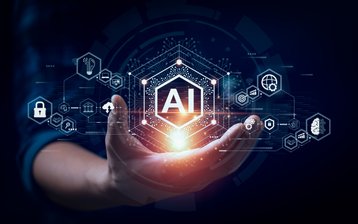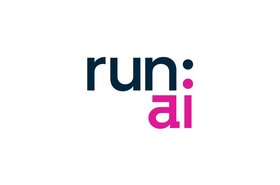Artificial intelligence (AI) and cloud computing are driving enhanced efficiency, elevated customer service, and time-saving benefits for businesses. While the spotlight often shines on their transformative effects in sectors such as manufacturing and office environments, it's important to recognize that AI and the cloud are exerting substantial influence across a diverse spectrum of industries.
In farming, for example, there are success stories like the Cornish start-up Aspia Space, which developed a technique using AI to predict how the surface of the UK looks under gloomy skies. This is being used within the agricultural sector, helping farmers to manage their crops more easily.
There is an abundance of information that can be stored in the cloud, which will then provide enough speed and computing capacity to present the data in a form useful to farmers. Examples like this are key in showing how companies are using AI, automation, and cloud-based resources to do more with less.
Taking SaaS one step further with AI
Information, patterns, and trends are valuable currency for businesses and the sheer tonnage of data available needs to be managed. AI tools can help organize the data and simplify the way it is consumed. Those insights can then be turned into action. For example, AI helped Land O’Lakes decide how to utilize a fleet of smart tractors to plant seeds in a more efficient way.
Many software-as-a-service (SaaS) providers are embedding AI tools into their systems. Microsoft Azure, for instance, offers a range of AI services that can be used to build intelligent applications. From email to product development and customer service, SaaS can benefit from AI.
Chatbots, for example, are commonplace in customer call centers, improving customer engagement and retention by providing rapid responses with human-like conversations 24/7. Chatbots minimize errors while collecting data, shorten sales cycles, and lower operational costs. AI tools help with the more routine tasks, handing off more complex jobs to human agents and optimizing workflows.
How AI and the cloud can offer increased flexibility
The cloud and AI complement each other, offering combined value with AI making cloud computing more powerful. The cloud, in turn, drives AI’s ability to impact the market at large. As Deloitte has pointed out, the cloud is democratizing access to AI by giving companies the ability to use it.
Cloud computing offers businesses more flexibility to scale up or down as needed. If this is a busy time of year for a business, then it can use a hyperscaler, such as Google Cloud or IBM Cloud, for more computing and storage capabilities. AI gives the business insight into when the time is right to start using more resources, or when things slow down and you need to decrease the consumption of resources.
AI helps businesses use resources wisely by taking the complexity out of consolidating and accessing a large amount of knowledge and experience. Organizations can rely on AI tools to help make smarter decisions about business strategies.
Automating processes to enhance efficiency
Whether you work in agriculture or healthcare, automating business processes is key. This leads to the debate over building or buying IT infrastructure. Back-office operations such as billing and invoicing, purchase ordering, and data entry take up time and resources.
After AI applications are built, companies are looking for go-to-market strategies to reach the vast majority of small and medium-sized businesses (SMBs) that need these solutions. Now, the dilemma becomes - how to serve this model on a large scale. It is essential to automate the delivery of these solutions. My advice is to rely on a cloud platform that helps you to automate the ordering, provisioning, billing, and management of the smart solutions that you want to offer. These types of platforms also give you access to a network, or digital ecosystem, of vendors and managed service providers that can help make these services operational.
Automation, AI, and cloud computing are the essential ingredients to making business processes faster, more reliable, and more secure. Building, maintaining, and updating an IT infrastructure is costly and time-consuming, and it is probably not your area of expertise. Working with a cloud platform provider gives you agility and scalability without taking focus away from your core business.
Using AI to be more sustainable
The cloud also helps businesses, both big and small, with sustainability because migrating on-premises data centers to the cloud is more energy-efficient. A study by Microsoft, for instance, found their cloud is 93 percent more energy-efficient and 98 percent more carbon-efficient than a local data center. Insights from AI tools can help businesses save resources. According to the global think tank, Capgemini Research Institute, 48 percent of organizations surveyed are using AI for climate action.
AI and cloud capabilities are enhancing business strategies and operations in many different departments, alongside sustainable practices. Companies have turned to AI, automation, and cloud technologies to maximize workflow efficiency and use the information and insights collected to make data-driven strategic decisions.





